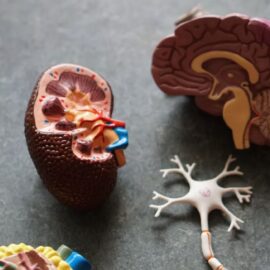

This article is an excerpt from the Shortform book guide to "The Book You Wish Your Parents Had Read" by Philippa Perry. Shortform has the world's best summaries and analyses of books you should be reading.
Like this article? Sign up for a free trial here.
Do you feel guilty when you just let your baby cry? Do you feel guilty when you respond every time?
Sometimes it seems like you can’t win in parenting, and crying babies are a well-traveled battlefield. It’s hard to know what to do when you feel guilty regardless, and conflicting advice doesn’t help. Mother and psychotherapist Philippa Perry weighs in on the debate with an opinion rooted in attachment theory.
Read more for Perry’s advice on how to deal with a crying baby.
How to Deal With a Crying Baby
Babies can express themselves only by crying out. They can’t soothe themselves, nor do they have object permanence (our ability to discern that something exists when we can’t see it). So, they can’t reason with themselves and know that you’re still close to them if you’re not within their sight. When no one responds to them, they feel alone and scared.
Perry’s advice on how to deal with a crying baby comes from her belief in attachment theory. She argues that you should consistently respond to your baby’s cries because it’s the best way to create a secure attachment to them.
(Shortform note: Other parenting experts agree that consistently responding to your baby’s cries is an important way to ensure your baby feels safe and cared for. This is especially important in the first few months of life—babies don’t begin to develop object permanence until seven or eight months old. Another way to instill a sense of safety in your baby is by talking to them. They may not understand what you’re saying, but your voice will be calming and reassuring. Additionally, babies learn about the world through touch, so give them a lot of cuddles and kisses when soothing them.)
Responding to babies’ cries is how you show them that they’re safe—they learn how to soothe themselves when you’re consistently comforting them and showing them that you’re there for them. If, in contrast, you frequently let your baby cry for long periods without going to them, Perry argues that they’ll eventually stop crying because they’re suppressing the feelings that make them cry—not because they’ve learned to calm down in a healthy way.
(Shortform note: Babies learn self-soothing from their parents at the neurological level. Neural pathways that deliver soothing neurochemicals form when babies experience parental soothing. When babies are left unattended for long periods when crying, these pathways may not form in the same way, making it more difficult for them to manage their emotions, anxiety, and behavior throughout their lives.)
Attachment Theory
Perry’s advice for how to deal with a crying baby is based on attachment theory. This theory states that babies are born with the ability to bond with other humans, and they take their cues for how to do this from their parents. The way their parents interact with them in this early stage of life—when they’re learning how bonds are formed—determines how they’ll relate to others throughout their lives.
Perry says that the best way a parent can create a secure attachment to their baby is to respond consistently to them when they cry. When babies are unfailingly offered affection, fed, comforted, and attended to, they tend to form a secure attachment style. They grow up able to trust and connect with others, and they believe in people’s goodness. This generally makes relationships and other aspects of life much easier.

———End of Preview———
Like what you just read? Read the rest of the world's best book summary and analysis of Philippa Perry's "The Book You Wish Your Parents Had Read" at Shortform.
Here's what you'll find in our full The Book You Wish Your Parents Had Read summary:
- The tools you need to cultivate a healthy relationship with your child
- How to make sure your child is an emotionally secure individual
- Why the way you speak about yourself has a big impact on your child






